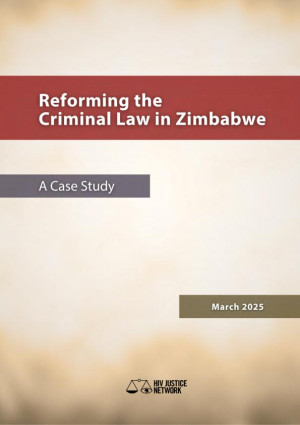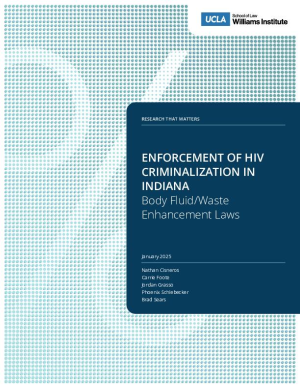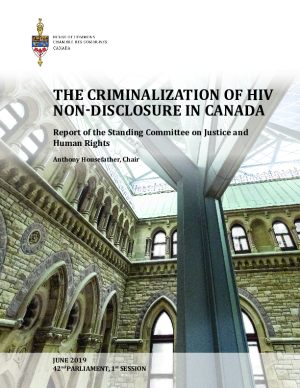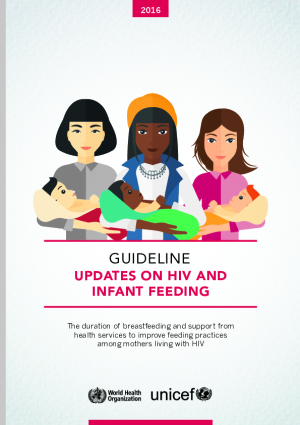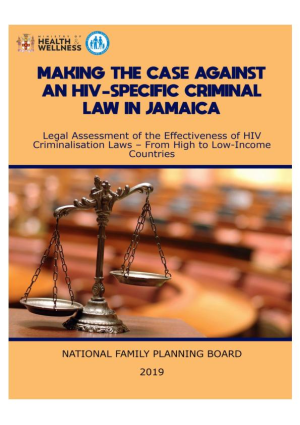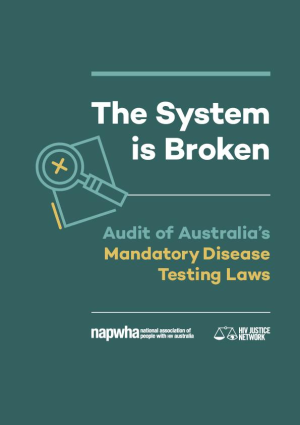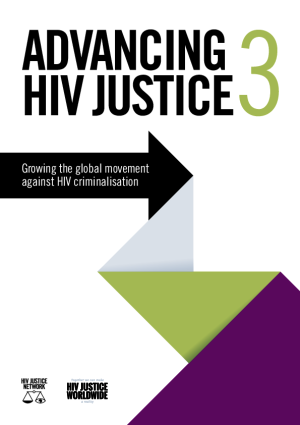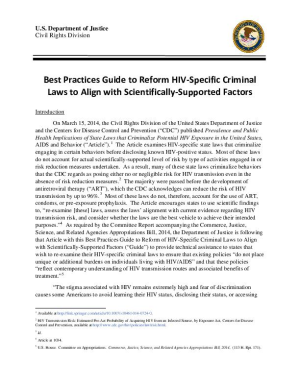The Health Impacts of Law for People Living with HIV: A Systematic Review of Literature
This review explores the complex relationship between law and health for people living with HIV, highlighting how legal frameworks impact access to care, prevention, and overall well-being. It examines key legal challenges—including criminalization, migration restrictions, privacy, and housing laws—demonstrating how these issues intersect and amplify health-related harms. By systematically analyzing global literature, the review uncovers how seemingly neutral laws disproportionately affect people with HIV, reinforcing stigma and barriers to care. The findings offer crucial insights for policymakers, legal professionals, and advocates working to address these systemic injustices.
Reforming the criminal law in Zimbabwe: A case study
The report, Reforming the Criminal Law in Zimbabwe: A Case Study, explores how advocates, legal experts, and community leaders worked together to repeal Section 79 of Zimbabwe’s Criminal Code, which criminalised HIV non-disclosure, exposure, or transmission. It outlines key strategies used in the campaign and lessons for other countries seeking to end HIV criminalisation.
Enforcement of HIV Criminalization in Indiana: Body Fluid/Waste Enhancement Laws
Using data obtained from the Indiana Office of Court Services, online court-tracking tools, and Probable Cause Affidavits, this study from the Williams Institute examines the enforcement of Indiana’s HIV-related body fluid laws.
The Criminalization of HIV Non-Disclosure in Canada – Report of the Standing Committee on Justice and Human Rights
Ground-breaking report recommending that the Government of Canada works with each of the Canadian provinces and territories to end the use of sexual assault law to prosecute allegations of HIV non-disclosure.
WHO Guideline: Updates on HIV and Infant Feeding (2016)
The overall purpose of this guideline is to improve the HIV-free survival of HIV-exposed infants by providing guidance on appropriate infant feeding practices and use of ARV drugs for mothers living with HIV in countries with high HIV prevalence and settings in which diarrhoea, pneumonia and undernutrition are common causes of infant and child mortality.
The guideline addresses four aspects of infant feeding in the context of HIV:
-
the duration of breastfeeding by mothers living with HIV;
-
interventions to support infant feeding practices by mothers living with HIV;
-
what to advise when mothers living with HIV do not exclusively breastfeed; and
-
what to advise when mothers living with HIV do not plan to breastfeed for 12 months.
The guideline informs national policy-makers on what may be relevant for national policies and programmes, it provides guidance to health-care providers, researchers and clinicians involved in managing pregnant women and mothers living with HIV at various levels of health care.
Pour des procès équitables – Deuxième édition
Ce manuel est un guide pratique des normes en matière de droits humains pertinentes, destiné à tous ceux qui cherchent à savoir dans quelle mesure un procès pénal ou un système judiciaire est conforme aux normes internationales d’équité. Il s’adresse en premier lieu aux observateurs et aux autres personnes désireuses d’évaluer l’équité d’un procès spécifique, ainsi qu’à tous ceux qui souhaitent savoir si le système judiciaire d’un pays respecte les normes internationales d’équité. Il peut aussi servir de guide aux législateurs, aux juges, aux magistrats du parquet et aux avocats de la défense, ainsi que d’outil de formation.
Making the case against an HIV-specific law in Jamaica
This assessment ‘Legal Assessment of the Effectiveness of HIV Criminalisation Laws-from High to Low-Income Countries’ demonstrates why the enactment of an HIV-specific criminal law in Jamaica would be harmful to the national HIV response. It sets out the bases on which the recommendation for an HIV-specific criminal law should be rejected and highlights the need for public health policy considerations to centre the discussions surrounding HIV criminalisation in Jamaica.
The System Is Broken – Audit of Australia’s Mandatory Testing Laws
Audit, led by Sally Cameron, HIV Justice Network’s Senior Policy Analyst, on behalf of HJN and the National Association of People with HIV Australia (NAPWHA) revealing that mandatory testing laws are at odds with national HIV testing policy and are operating outside the structured and highly successful HIV responses managed by clinicians and departments of health. The audit found that in many instances, the laws, their implementation, and monitoring include numerous structural failures, usually occurring in multiple states.
Advancing HIV Justice 3: Growing the global movement against HIV criminalisation
Provides a progress report of achievements and challenges in global advocacy against HIV criminalisation from 1st October 2015 to 31st December 2018.
Best Practices Guide to Reform HIV-Specific Criminal Laws to Align with Scientifically-Supported Factors
Provides technical assistance to states wanting to re-examine HIV-specific criminal laws to ensure that existing policies “do not place unique or additional burdens on individuals living with HIV/AIDS” and that policies “reflect contemporary understanding of HIV transmission routes and associated benefits of treatment.”
Resolution of the Board of Directors of the National Association of Criminal Defense Lawyers Concerning HIV Criminalization
Opposes laws that base criminal liability and/or penalty on HIV status, rather than intent to harm. Argues that focus on knowledge of status as a key element of an HIV-related crime rather than intent and capacity to transmit the virus, is a classic example of an inadequate mens rea (or criminal intent) requirement and overly expansive criminalization.

